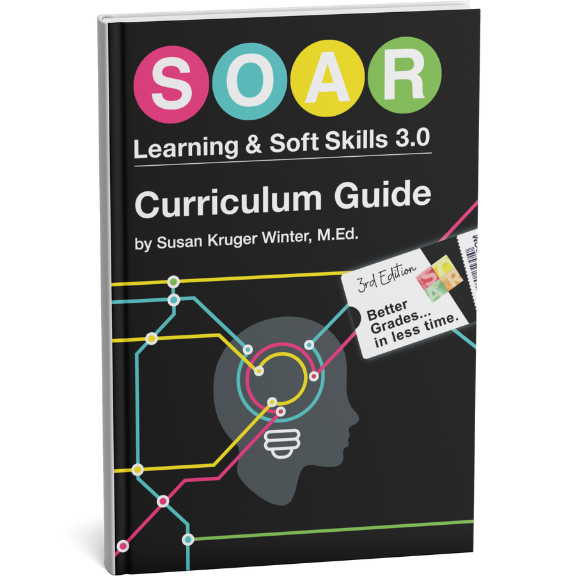High School Honors Students Falter in College
The following story is real. It may alarm you. It’s about one high school HONOR student who got to college… and floundered! The truth is, she’s not alone. 2/3rds of high school honors students have the same problem.*
I am thrilled to introduce our summer intern, Jessie.
Jessie just completed her sophomore year of college. She graciously offered to share her first-hand experience about transitioning from one of the country’s top-rated high schools to a top-rated university. In high school, she was one of my husband’s best marketing students. She was a State Champion and competed at the 2011 DECA International Career Development Conference.
Typically, our society does not worry about the “honor” students. But, as Jessie shared with us, no one is immune to a lack of effective study skills.
———-

Brian with His Uber-Talented Co-Moderator, Julia Dalrymple and one of their State Champions, Jessie Smude. Jessie Went on to Be a Long-Time Intern and Is Now a Full-Time Employee with SOAR!
I’ll let Jessie tell you the rest…
———-
Although I graduated near the top of my class, the one thing I didn’t learn in high school would almost be my demise in college…
When I graduated from high school, my cumulative GPA was 3.7. I took almost all of the honors and AP classes that my high school offered, as well as being recognized as a “scholar athlete” and a part of the National Honor Society. School was very easy for me, and I did not need to spend much time studying. I spent around one hour on homework and studying each day, but never more than two hours in a day.
I typically did not feel the need to study for tests. I did not read textbooks. I would just rely solely on my brain and what it remembered from class. However, when I thought I did need to study I would make flash cards of the information, or just read over a study guide a couple of times and call it good. High school was a breeze for me, and I assumed that going off to college, I would be in the same boat. That was not the case.
I went on to Michigan State University immediately after high school. My school is one of the biggest institutions in the country, enrolling 48,000 students. It has Division I athletics and is part of the Big Ten Conference. I couldn’t have been more excited to be there! Right from the start I loved all the new people I was meeting, things I was doing, and all the perks of being away at college.
The only thing that was not enjoyable my freshman year, were my newly discovered academic struggles. I quickly realized that although I did well in high school, I was still not prepared for my academic future.
After attending my first couple weeks of college lectures I discovered that high school may have taught me the basics of math, science, history, etc. but it did not teach me the most important thing I needed to know… study skills.
I was never taught how to take notes during a lecture, how to properly read a textbook, or how to correctly study for an exam. I never needed to do these things before, but it became a problem in college. Instead of focusing on the material my professors were teaching, I was trying to teach myself study skills.
Before I knew it, I went from having fill-in-the-blank notes in high school that I hardly even had to pay attention to, to sitting in a classroom of 600 other students with the professor constantly talking for an hour and a half. I didn’t know how to listen, or how to take notes. I couldn’t even pick out which parts of the lectures were most important. At the end of class, the professor would assign a couple chapters from the textbook to read before the next class.
I laughed and thought he was crazy! I would look at these hundred pages or so of uninteresting words that meant nothing to me, and think, “Why bother? I won’t remember anything, anyway!”
“Besides,” I thought, “I don’t need to read. I never have had to before.” So now, I was not only not taking any sort of proper notes, I wasn’t reading my textbooks. Obviously, this created a problem when I needed to study for an exam. I hardly had any valid notes. I could not (and *did not*) want to figure out the textbook.
So, how was I going to study the right information for the exam? In short, I didn’t. These bad habits and lack of study skills lead to me having grades my first semester that were less than my best.
Stay tuned for next week’s article where I’ll explain how the study skills I’ve learned from SOAR® are helping me prepare for the toughest year of my college education, my Junior year…
Give your students a heads-up next year with the SOAR® Study Skills Curriculum.
This article is part 1 of a 2-part series. See part 2 here.
*2/3 of state-funded merit scholarships are lost due to “ineligible grades” earned during students’ first year of college.
-Susan Kruger
EB 050817
Six Steps
Conquer the Chaos
Get Our Free Guide & Information on...
 How to Organize & Motivate Students for Success
How to Organize & Motivate Students for Success
"*" indicates required fields
Get Our FREE Curriculum Guide!
The SOAR® Curriculum
The most critical learning, organizing, and communication skills needed for school. Learn more here.
Who’s Using SOAR®?
SOAR® Guarantee
Click here to learn more.




